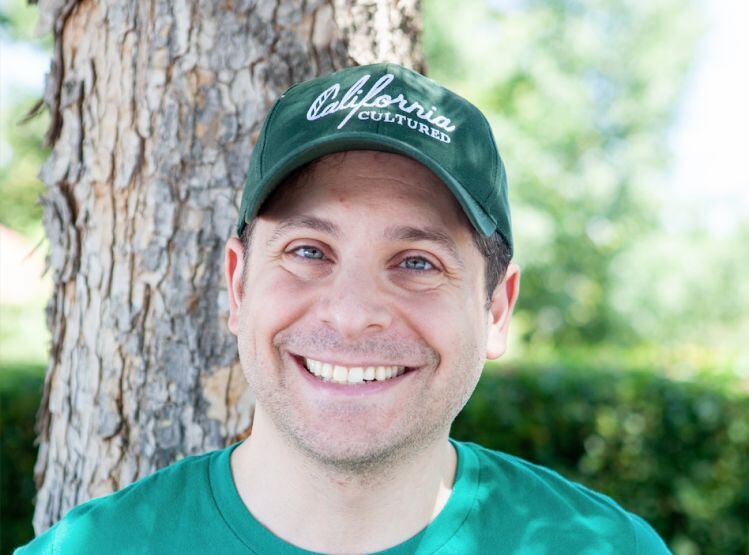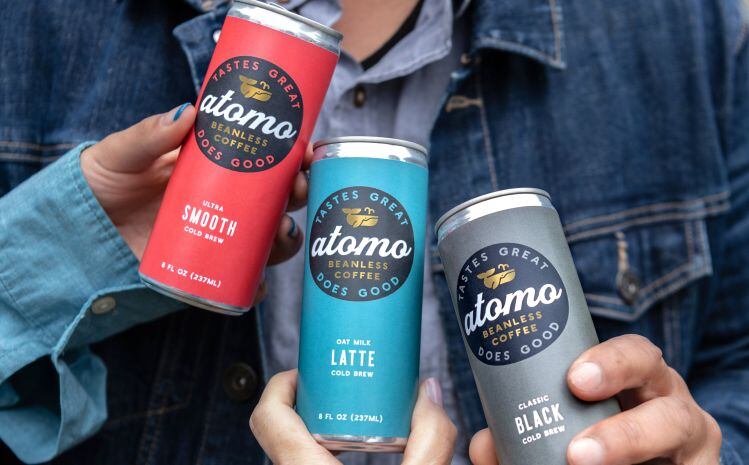Put another way, says Perlstein, coffee and cocoa are pretty complicated, and you can’t just program a yeast cell to produce them in a fermentation tank.
“They contain hundreds, even thousands of flavors and bioactive molecules,” observes Perlstein, who is growing material he claims approximates cocoa nibs using plant cell culture and has recently teamed up with Finnish technical research center VTT to work on culturing cells from coffee plants.
But how close are California Cultured’s cocoa ‘nibs’ or coffee grounds to the real thing?
“We know we're currently replicating thousands of flavors,” claimed Perlstein. “And that's the real beauty of plant cell culture. You can have more complexity, more of the nuance, which is missing in a lot of single note flavors [he cited the difference between vanillin - a compound in vanilla pods which can be produced via microbial fermentation - and vanilla extract, which has complex smoky, spicy, botanical, sulfury, sweet and creamy notes as well as that core vanilla flavor you get from vanillin].
“And to me, that's the magic of all the molecules working together, plus you get the benefits of the bioactive molecules for human health and wellbeing,” added Perlstein, who has worked with plant cells, animal cells and microbial cells during his career.
Plant cell culture: ‘Emerging from a very cold winter…’
So how established is plant cell culture? “A lot of the work on plant cell culture happened in the early part of this century,” said Perlstein, who was speaking to FoodNavigator-USA before moving into a new 12,000sqft facility and pilot plant in West Sacramento.
“But I’d say it’s now emerging from a very cold winter and there are companies using it for flavor and color production, and some for pharmaceutical production."
He added: “One of the one of the most effective drugs for breast cancer is called Taxol. When it was discovered [in the bark of the Pacific yew tree], they were trying to figure out how to make it [on an industrial scale] through chemistry or synthetic biology [using microbes], but the only way they could actually scale it up was with plant cell culture.
“We think plant cell culture has some really interesting advantages. You don't need the most expensive reactors. They don’t even have to be steel.”
‘Taxol is being produced in 75,000-100,000 liter tanks, so we do know that these very large industrial systems can handle plant cell culture’
While California Cultured’s technology looks to have potential for producing high-value bioactive ingredients such as cocoa flavanols, could it ever produce the millions of tons of cocoa nibs needed to compete with Hershey or Mars?
It’s very early days, said Perlstein, who started the company in summer 2020, “But Taxol is being produced in 75,000-100,000 liter tanks, so we know that very large industrial systems can handle plant cell culture. But you’re right, we’re not going to produce a million tons of chocolate out of the gate.
“Our initial goal is to focus on flavanols and make sure our product tastes great and functions well, that we have the right regulatory approvals around the world and the right partnerships in place as we hit higher and higher titers and scale.”
Asked about regulatory challenges, he said: “In essence, we feel pretty confident because every single ingredient is food grade from beginning to end.”
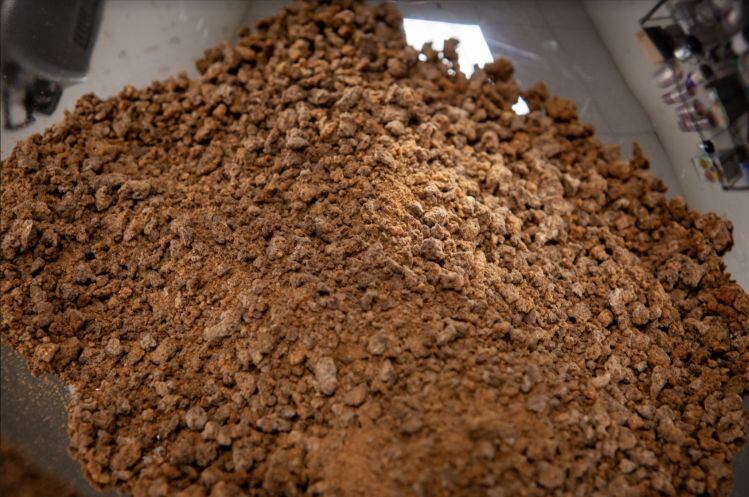
‘We're basically making an analog of chocolate nibs’
So how does plant cell culture work?
For cocoa, said Perlstein, “We evaluate tissues from different parts of the cocoa plant and look at the genes, the metabolomic profile and the metabolization patterns. From there, we're able to select specific cell lines that can for example make our cocoa flavors really pop and taste great.
“We grow and divide those cells using different bioreactor processes and once they reach a stage of maturation, we inoculate the cells with microbes [hence the name California ‘Cultured’], and after the fermentation, we dry them, and roast them, so we're basically making an analog of chocolate nibs. We then use analytical chemistry to understand what molecules we’re making.
“From there, you can then just put the nibs in a traditional cocoa grinder and add everything that you would with traditional chocolate.”
How scalable is plant cell culture?
So what inputs are required to get the cells to grow?
“The main inputs are sugar, amino acids, and very small amounts of plant hormones,” said Perlstein, “and they have to be agitated with the right gas mixture, and that's basically it. But the beauty of this process is that within a couple of weeks, you can have a finished batch of delicious tasting cocoa, whereas in the wild it usually goes from six months to over a year.”
For coffee, the process would be much the same, added Perlstein, who has recently teamed up with VTT, a leading Finnish research organization with specific expertise in plant cell culture technology and microbial technologies.
“They have a great track record of working with companies to develop expression-based systems. We’re looking at doing everything from coffee nibs to instant powder to even a pour over ground. We’re researching varietals that are very difficult to grow, that have unique flavors and which sell at a pretty high cost per cup.”
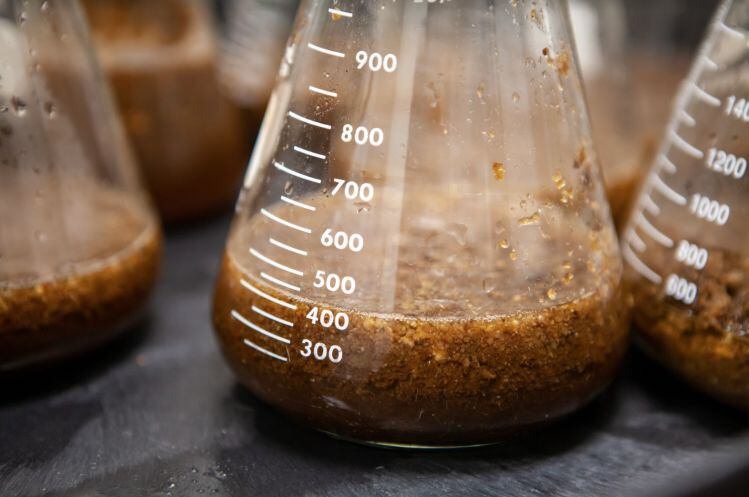
The rationale behind coffee and cocoa from plant cell culture
To those wondering why California Cultured and some other startups looking to reverse engineer coffee and chocolate such as Voyage Foods, Atomo and QOA are doing this in the first place given that regular coffee and cocoa plants are pretty good at producing our favorite beverages and foods, there is a confluence of factors, said Perlstein.
“Coffee is only going to get more and more expensive as demand keeps going up and the available places to grow it are shrinking, such that in the next five or eight years, there's going to be massive global disruptions in the global coffee supply chain. So we're looking to partner with forward looking companies that want to explore a better way of producing coffee sustainably and ethically far into the future.”
The same applies to chocolate, he said, which is only going to get more expensive over time as demand exceeds supply, and people start paying more attention to issues from deforestation and climate change to child labor.
“In West Africa, many yields of cocoa are dropping rapidly due to disease and climate change. Pollination rates are dropping, labor's hard to find, it can contribute to deforestation… some of the bigger reasons that we think that this type of technology is necessary… and we think almost inevitable.”
If you’re making coffee and chocolate using plant cell cultures, he said, “You don't have to wait to plant a tree. We don't have to worry about fertilizers, pesticides, pollination, child labor and climate change.”
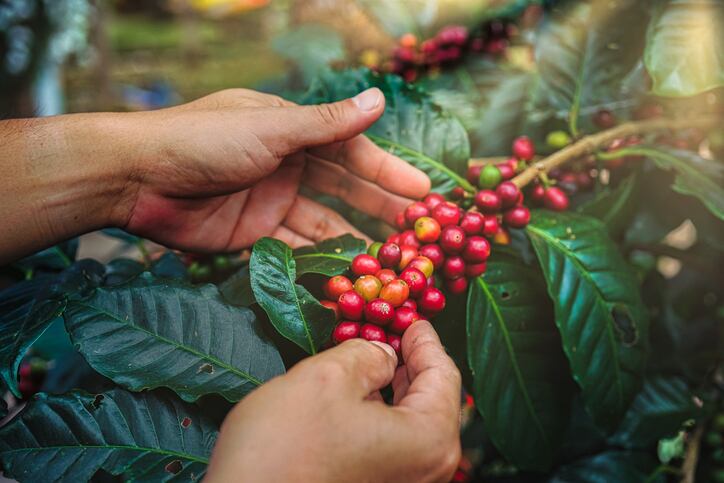
IP, funding, and the business model
So what’s the business model at California Cultured?
“Right now we are looking for partners to work with and to scale up with us,” said Perlstein, who has raised around $5m to date from a mix of “corporate, institutional, and angel” investors. “Specifically those interested in cocoa flavors, flavanols and new types of cocoa butter we're developing.”
As to IP, he said, plant cell culture pioneer and former chief scientific officer at Diana Plant Sciences Sung-Yong Harrison Yoon “is involved in many parts of our work and IP. We've been working very closely over the last couple of years to develop some of this, and we're very excited about some of our pieces of IP that we're going to going to be submitting very shortly.”

